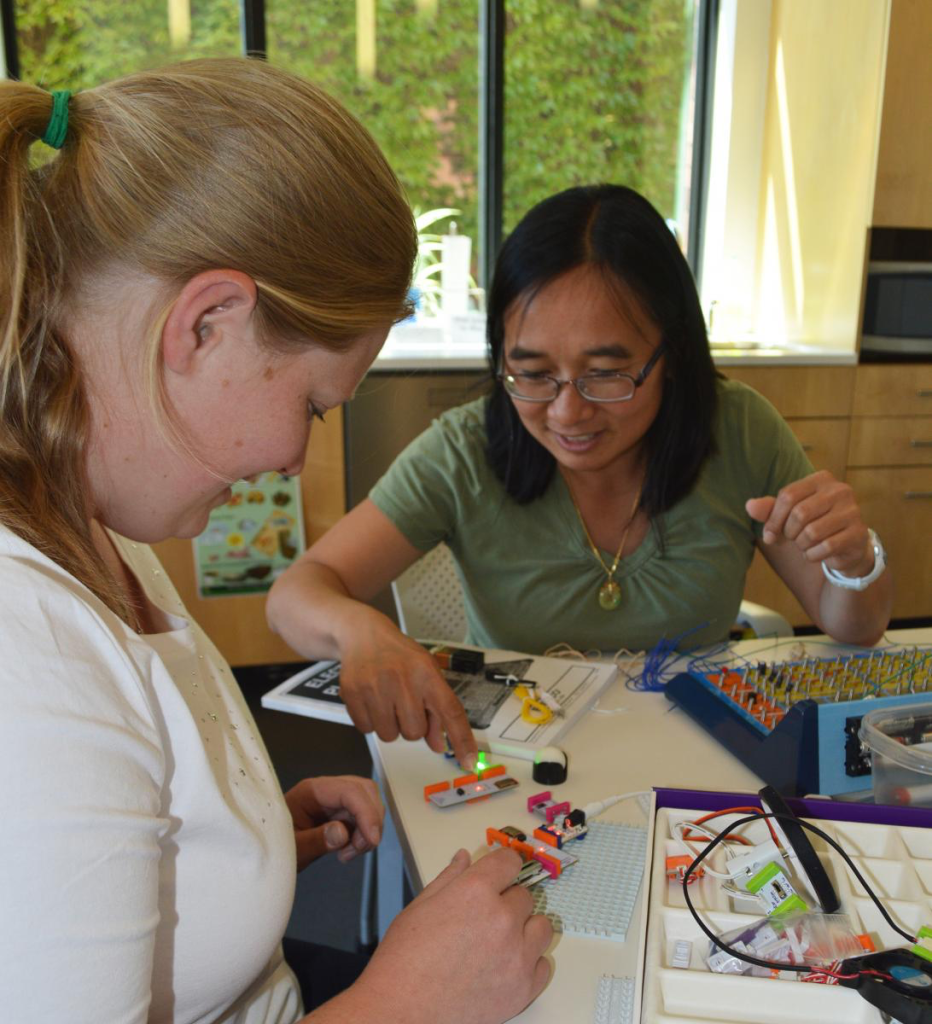Middle and high school teachers, Hannah Earhart, Phelana Pang, and Alexandra Pike, all took part in the Center for Neurotechnology (CNT) Research Experience for Teachers (RET) program this summer at the University of Washington (UW). As part of the program, they designed innovative curriculum units covering neural engineering and neuroethics topics. They will be piloting these units with their students throughout the upcoming school year. Based on the results of their piloting experiences, the curriculum units will be revised, finalized, published and disseminated widely to secondary school science educators.

The RET program is a summer research experience created for middle and high school science teachers. The seven-week program engages practicing teachers in an apprenticeship in a neural engineering lab where they investigate independent research projects. Additionally, the teachers design educational curriculum units to share the concepts and innovations of neural engineering with students back at their home institutions.
Hannah Earhart teaches at the Attic Learning Community, an independent school in Woodinville. Through the RET program, she worked with Dr. Sara Goering’s CNT neuroethics research group. Her mentor was CNT Neuroethics Fellow, Dr. Laura Specker-Sullivan. As a member of this research group over the summer, Earhart apprenticed into the world of neuroethics research with her project, “Complicating Student Views through Neuroethics.” Her expertise as a K-12 educator was leveraged in the design of her research projects, which included a literature review to discover different models of ethics education and then a focus on understanding how film can be used as an instructional strategy. She developed, piloted and revised a survey instrument to measure viewers’ attitudes and beliefs about disability and neural technologies before and after viewing the documentary, “FIXED: The Science/Fiction of Human Enhancement.” Earhart also focused her curriculum unit on neuroethics education. In this unit, students grapple with case studies focused on neural engineering, view the “FIXED” documentary, complete the pre/post survey instrument and engage in a stakeholders’ council.
Working in the UW Electrical Engineering department lab of CNT member, Dr. Matt Reynolds, Phelana Pang (from the Seattle Girls School) and Alexandra Pike (from Juanita High School in Kirkland) collaborated on their research project, “A Calorimeter Apparatus for Specific Absorption Rate Testing.” Along with their mentor, CNT student Apoorva Sharma, they designed and tested a calorimeter apparatus to validate simulated human-implant specific absorption rate of a saline tissue proxy in order to determine if tissue damage occurs from the heat generated from a wireless implant. While spending their summer immersed in the field of electrical engineering, Pang and Pike collaborated on the design of two curriculum units focused on circuits, sensors and sensory substitution devices. Pike designed a unit for her high school physics students with a strong emphasis on circuitry, while Pang designed a unit for her middle school students with a focus on the engineering design process. Both units include lesson plans focused on relevant neuroethics topics.
